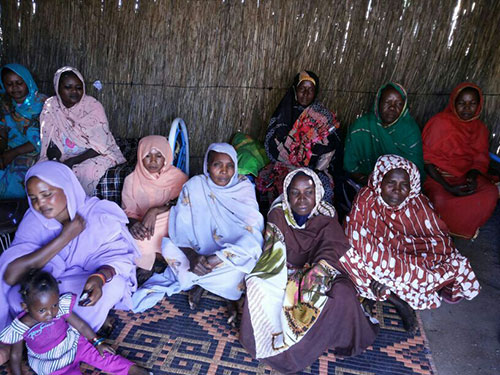News
In Sudan, male partners critical in fight against FGM
- 02 September 2014
News
KHARTOUM, Sudan – Sheikh Mohamed Saeed, a 74-year-old community leader in Sudan’s Wad Sharefai Refugee Camp, has become an unlikely advocate to end female genital mutilation (FGM).
The practice can result in infection, haemorrhage, permanent physical damage and even death. It also greatly increases the risk of complications during childbirth. Yet it persists for a variety of reasons rooted in gender inequality.

In Kassala, FGM is widely believed to prevent girls from becoming sexually active before marriage, and thus it is performed to preserve the honour of the family. It also is often thought, incorrectly, to be a religious requirement.
A champion for change
In December 2013, Mr. Saeed was selected to attend a training on FGM, organized by the Sudanese Red Crescent Society and supported by UNFPA. The training addressed all aspects of the issue, including the reasons it is performed, the human rights concerns underlying the practice, as well as its consequences.
“After the trainings and the information I got exposed to, and the tough discussions we had through the course of all this, I said to myself, how can a man be a leader without taking such a challenge and fighting for positive change?” Mr. Saeed said.

He is now an ardent advocate for the abandonment of FGM. He tours the camp, engaging others in conversation about the practice. He speaks out at the mosque, and challenges people at social gatherings to think critically about the issue.
He also encourages religious leaders to help end FGM. Because of Mr. Saeed’s outspokenness, one of the religious leaders in the camp has affectionately named him the “champion of the camp.”
Working in concert
– Awad Taha